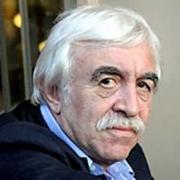Cards are re-shuffled in Iraq (and Turkey)
Paylaş
I was listening to Peter Galbraith who told me the content of the meeting he conducted with Massoud Barzani in Washington three weeks ago.
Galbraith, known as the closest figure in American politics to Iraqi Kurds and even known as one of their most feverish supporters, warned Barzani not to believe that the United States will never withdraw from Iraq, even if he is told so in Washington. Moreover, Galbraith said to Barzani that in case Barack Obama is elected as the president, the United States will certainly end its military existence in Iraq.
During our meeting in Washington, he told me that American authorities like Bush, Cheney and Rice had discussed Status of Forces Agreement, or SOFA, with an Iraqi Kurdish committee which included authorities of the central government such as Barham Salih, who carries the title “Iraq’s deputy prime minister,” in Baghdad.
I asked Galbraith what would happen if the SOFA was not signed and the United Nations Security Council failed to agree to a resolution.�
“Such a condition means that soldiers are free to kill a man by firing at any place, at any time,” he answered, smiling ironically. This was a condition that nobody wanted and the SOFA was signed at the beginning of the week.
In relation to the SOFA which was approved by all but one of the 28 cabinet members, Iraqi Prime Minister Nuri el-Maliki’s spokesman, Ali Dabbagh, said, “We are constantly told this is not a perfect solution for Iraq and America. However, this is what (SOFA) conditions and needs have brought.”
Probably, Iraq’s parliament will accept the SOFA in the next week, and the agreement will come into effect as of Jan. 1, 2009 thanks to the signature of the presidency board composed of President Celal Talabani and his deputies Adil Abdülmehdi and Tarık el-Haşimi, in line with the Iraqi Constitution.
The SOFA has 30 articles. One of the most striking is its third article’s second clause. The clause foresees a withdrawal of American belligerent forces from villages and all settlement places by, at the latest, June 30, 2009. Since the effective date of the agreement covers three years, not even a single American soldier will remain in Iraqi territory by the end of 2011, the SOFA says.
If the new president, Obama, remains loyal to the timetable for withdrawal in 16 months as he had declared, the pullout of U.S. troops from Iraq will not even be as late as the end of 2011 and rather, the United States will have entirely withdrawn by mid-2010. There is nothing in the agreement that says the opposite. 2011 is a final date and not an obstacle for an early withdrawal.
According to a commentary, the SOFA draws attention to the, “official recognition of a striking change in power relations between an occupation force and a state that was created under its auspices.” It has been revealed that the administration in Iraq, considered as a “puppet regime” by some, is actually a local power that awaits the “right time” to maintain supervision over the military force of the occupying country.
This commentary underlines the following matter, “From a broader geopolitical framework, the SOFA shows the political reality that the U.S. military force in Iraq will be unable to be turned into a long-term influential force. In the event that a Shiite regime with close political and religious ties with Iran comes to power, dependence on the U.S. military force as only a temporary policy is inevitable and the withdrawal of this military force progressively under certain circumstances will equally be inevitable.”
Perhaps, this comment explains why Iran was quite satisfied with the signing of the SOFA. Then can we say that the American defeat in Iraq has been confirmed in the same way as Iran has won Iraq? A tremendous thunder is storming in Iraq right now over the SOFA. The majority of those who broke the thunder argue, “the matter is not SOFA but Maliki and what sort of a regime will be established once SOFA is put in place.”
It is certain that, “playing cards will begin to be remixed.” There is no automatic tie between the SOFA or the end of the American occupation to the maintenance of stability in Iraq. On the contrary, the country faces the risk of being plunged into a new and more complicated chaos and conflict. It is possible to predict the Shiites, and thus Iran, remain and will remain dominant in the central government in Baghdad.
It would be very appropriate to search Turkey’s new opening up toward the Iraqi Kurds; although it is missing and in a timid tempo, in these emerging “realities” of Iraq. What could Obama and the SOFA mean for Turkey in the context of the Iraq (or Kurdish) problem? We will discuss. We must discuss.
Paylaş








